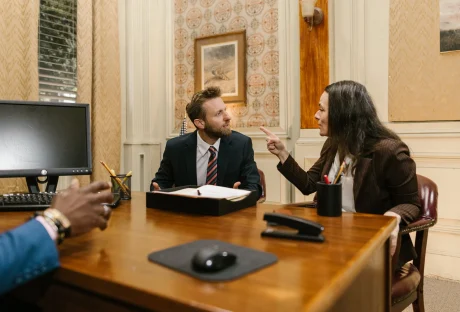One of the most renowned professions in the world is that of being an attorney. There’s a pretty wide stereotype when it comes to those in the legal world. Most people carry a preconceived notion that these are essentially high-quality professionals with a lot of knowledge, shark-like instincts, and high-class life. What it all boils down to, however, is the job itself: defend and protect their clients to the best of their abilities.
A boss lawyers hold several keys to unlock success.
Communication:
One of the main traits of any lawyer worth their salt is being able to communicate. This goes for every aspect of the job—clients, opposing counsel, even staff. It is unavoidable to enter debates or even heavy discussions, such as when there is a division of properties amongst heirs or attempts at settlement during a divorce. Being a good communicator is crucial in handling one’s practice and one’s cases.
Always Learning:
Times change, and there are usually exceptions to every rule. Being able to do research and find factual information that can prove helpful to a present case is essential. Cases outside of one’s preferred field can always fall into one’s lap, and being open to learning more will not just benefit that case but future cases as well. On top of that, while anyone can do research, developing that as a skill will also be of great assistance in the courtroom.
Lawyers that want to experience real-life training and education should opt for trial lawyers college. This will help them work with the best legal minds in the business and understand the inner workings and intricacies of the profession. How good you are as a lawyer depends a lot on the kind of courtroom experience that you are able to gather. By being a part of reputed institutions, you can expect those kinds of experiences even when you are completing your college education as a lawyer.
Organization:
A mess is equivalent to stress in most cases, but even more for lawyers. Don’t jump to a conclusion that this means there is a need for “Marie Kondo”-level tidiness. There is, however, a serious need to be organized to the point of being able to work with a clear mind and find what one needs in an instant. The neater a file cabinet is, the better. This also applies to digital spaces—not having a cluttered desktop and knowing where to find a certain PDF can make a huge difference.
Focus:
It’s one thing to be aware of what one wants. It’s an entirely different thing to keep an eye on the prize no matter what happens. Staying focused is vital to achieving a vital end goal such as winning a case. Keeping a level head and being able to stay set on a specific objective allows for a clear mind and the ability to make the right decisions. The most dedicated of lawyers can be inundated with multiple factors throughout several trials, yet remain unfazed. This is a big advantage and a definite necessity to reach success.
Patience:
While the ideal is usually for cases not to drag on very long and for deals to close right away, patience is actually incredibly helpful. This is a skill learned and practiced during law school, which takes years to complete. Patient lawyers usually get better deals for their clients and allow for the proper questioning and cross-examination of witnesses. Rushing through things can lead to missing out on key pieces of evidence or a change of heart amongst parties that could greatly affect the case. As the old saying goes, “slow and steady wins the race”.
Reputation:
In this day and age, reputation is still quite important. The law profession is no stranger to this, especially since clients will always consider what other people have to say about the lawyer’s body of work—and how he or she was to work with. It’s also no secret that mudslinging, while a very low and unethical blow, is a tactic that some people will resort to in order to force an outcome. Having a good reputation will not only attract more clients, but it will also serve as a defense for any unpleasant situations that may arise.
Networking:
While this may seem to be a purely professional trait, it actually works both ways. Having a good personal network is just as important in the law profession as having a good professional network. This doesn’t just mean knowing the right people or having connections in the right places—it also means developing a good reputation for being personable. Calling in favors or asking for help is made several levels easier when there’s a reliable network to pull from.
Fighting Spirit:
The first step towards any action is the intention and feeling behind it. This applies to all things, but even more so to lawyers. Having a sense of fight over flight every time is absolutely helpful in the law profession. All the other keys—focus, organization, networking, patience, communication—all boil down to putting up a fight. This doesn’t mean physical brawling, of course. It refers more to a keen sense of aggression in terms of going straight for what the end goal is: winning the case at hand.
Read Also:






















